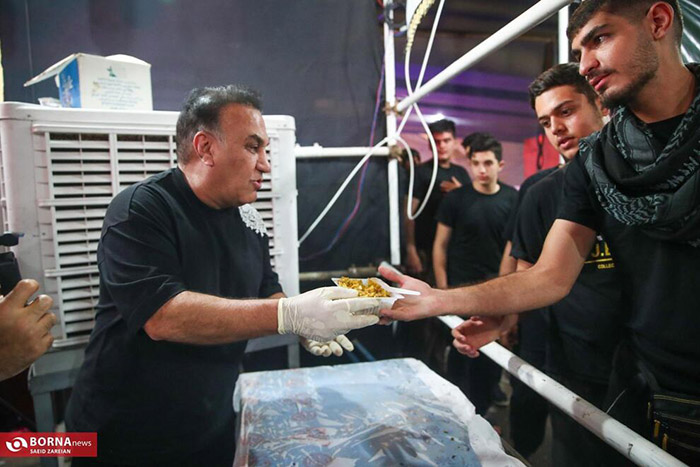As the sacred day of Hosseini’s Arbaeen draws near, millions of Shia Muslims from across the globe make the pilgrimage to the holy city of Karbala in Iraq. This annual event, which commemorates the 40th day after the martyrdom of Imam Hussein (AS), the grandson of Prophet Muhammad (PBUH), is one of the most significant spiritual gatherings in the Islamic world. Among the sea of devoted pilgrims this year, a notable group has joined the ranks: a team of esteemed athletes and Olympic medalists from Iran, organized by the Tehran Municipal Sports Organization.
These athletes, under the banner of “Mohiban Reza Athletes,” have made their way to Najaf, Iraq, to participate in the Arbaeen pilgrimage and to serve the millions of pilgrims who make the arduous journey on foot to the shrine of Imam Hussein in Karbala. Their participation, which is much more than symbolic, reflects a deep commitment to spiritual values and the ethos of service that lies at the heart of the Arbaeen pilgrimage.
The Significance of Arbaeen
Arbaeen marks the culmination of a 40-day period of mourning following Ashura, the day when Imam Hussein and his companions were martyred in the Battle of Karbala in 680 AD. This event, one of the most pivotal in Islamic history, is remembered for the stand Imam Hussein took against tyranny and injustice. His sacrifice is celebrated not only for its historical significance but also for the timeless message it conveys about resistance, righteousness, and the struggle for justice.
Every year, millions of Shia Muslims embark on the journey to Karbala, making it the largest annual pilgrimage in the world. The journey is physically demanding, often involving long treks on foot, yet it is considered a deeply spiritual and purifying experience. For many, participating in the Arbaeen pilgrimage is an expression of devotion, solidarity with the oppressed, and a demonstration of unity among Muslims.

